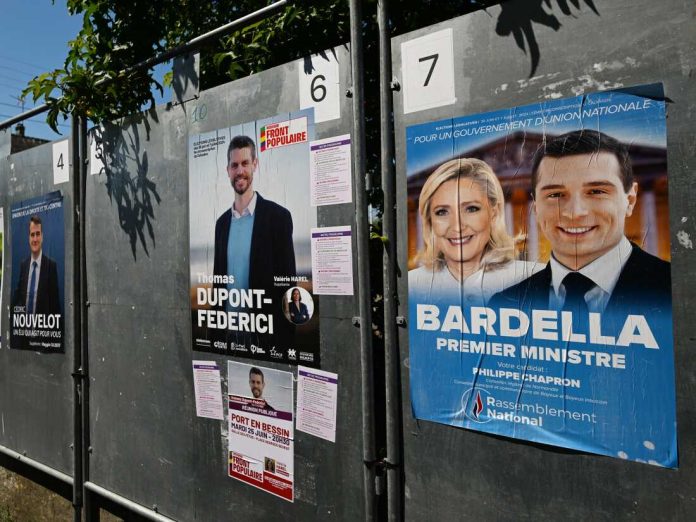Polling stations opened across mainland France on Sunday for the first round of snap parliamentary elections.
Polling stations open at 8 a.m. local time and close at 6 p.m. in smaller towns and 8 p.m. in larger cities, when the first exit polls and seat allocation projections are due for the decisive second round, which will take place a week later.
The election takes place three years earlier (for the first time since 1997) than it should have been, as President Emmanuel Macron unexpectedly announced the vote. The decision to call the snap election comes three weeks after Macron’s Renaissance party suffered defeat at the hands of the far-right Rassemblement Nationale (RN), the party of Marine Le Pen, in European Parliament elections.
However, the electoral system may make it difficult to assess the exact distribution of seats in the 577-seat National Assembly. Regardless of the result, Macron has promised to remain in office until the next French presidential election in 2027. The final result will not be known until after voting ends on 7 July.
Three Blocks to Choose
The majority of voters will choose one of three blocs: the New Popular Front (NFP), the newly formed left-wing coalition, Macron’s centrist “Ensemble” and the far-right alliance led by the RN.
- The fractured group of parties recently came together to form a new coalition. The New Popular Front, a coalition designed to revive the original Popular Front that prevented the fascists from taking power in 1936. It includes a wide range of parties, from moderate centre-left parties to the extreme left, Eurosceptic, anti-NATO France Unconquered party, led by one of Macron’s most vocal opponents, Jean-Luc Melenchon.
- French Prime Minister Gabriel Attal represents Macron’s centrist Ensemble alliance. Attal was reportedly one of the last of Macron’s inner circle to recognise the inevitability of early elections.
- The RN bloc is led by Jordan Bardella, the 28-year-old party leader chosen by Le Pen. The party has a costly economic programme and seeks to reduce immigration.
In France’s post-war history, there have been three periods of “coexistence” in which the president and the government represented opposing political camps, but none of them featured the competition of such radically divergent worldviews at the top of the state. Over the decades, while the far right has steadily gained popularity, voters and parties that did not support them have united against them whenever they have come close to national power, but the results of these elections may vary.
RN has a solid lead – polls
Opinion polls show the RN has a comfortable lead with 33-36 per cent of the popular vote, with the hastily formed leftist New Popular Front coalition in second place with 28-31 per cent and Macron’s centrist alliance in third with 20-23 per cent. Bardella has already signalled he will challenge Macron on global issues. France may demand a cut in the French contribution to the EU budget and clash with Brussels over European Commission posts, reversing Macron’s calls for greater EU unity and assertiveness on defence.
Le Pen and Bardella have sought to make their party’s image more acceptable to the mainstream, for example by denouncing anti-Semitism. Le Pen’s father, Jean-Marie Le Pen, the founder and long-time leader of the RN’s predecessor, had a history of overtly anti-Semitic comments.
The RN’s victory will also introduce uncertainty into France’s position on the Russia-Ukraine war. Le Pen has a history of pro-Russian sentiment, and while the party now says it will help Ukraine defend itself, it has also outlined red lines such as refusing to supply long-range missiles.
We are going to win an absolute majority, said Ms Le Pen in a newspaper interview.
